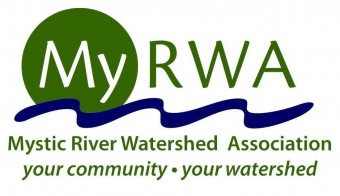- Education Topics
- Achievement Gap
- Alternative Education
- American Education Awards
- Assessment & Evaluation
- Education during COVID-19
- Education Economics
- Education Environment
- Education in the United States during COVID-19
- Education Issues
- Education Policy
- Education Psychology
- Education Scandals and Controversies
- Education Reform
- Education Theory
- Education Worldwide
- Educational Leadership
- Educational Philosophy
- Educational Research
- Educational Technology
- Federal Education Legislation
- Higher Education Worldwide
- Homeless Education
- Homeschooling in the United States
- Migrant Education
- Neglected/Deliquent Students
- Pedagogy
- Sociology of Education
- Special Needs
- National Directories
- After School Programs
- Alternative Schools
- The Arts
- At-Risk Students
- Camps
- Camp Services
- Colleges & Universities
- Counties
- Driving Schools
- Educational Businesses
- Financial Aid
- Higher Education
- International Programs
- Jewish Community Centers
- K-12 Schools
- Language Studies
- Libraries
- Organizations
- Preschools
- Professional Development
- Prom Services
- School Assemblies
- School Districts
- School Field Trips
- School Health
- School Supplies
- School Travel
- School Vendors
- Schools Worldwide
- Special Education
- Special Needs
- Study Abroad
- Teaching Abroad
- Volunteer Programs
- Youth Sports
- For Schools
- Academic Standards
- Assembly Programs
- Blue Ribbon Schools Program
- Educational Accreditation
- Educational Television Channels
- Education in the United States
- History of Education in the United States
- Reading Education in the U.S.
- School Grades
- School Meal Programs
- School Types
- School Uniforms
- Special Education in the United States
- Systems of Formal Education
- U.S. Education Legislation
- For Teachers
- Academic Dishonesty
- Childcare State Licensing Requirements
- Classroom Management
- Education Subjects
- Educational Practices
- Interdisciplinary Teaching
- Job and Interview Tips
- Lesson Plans | Grades
- Professional Development
- State Curriculum Standards
- Substitute Teaching
- Teacher Salary
- Teacher Training Programs
- Teaching Methods
- Training and Certification
- For Students
- Academic Competitions
- Admissions Testing
- At-Risk Students
- Career Planning
- College Admissions
- Drivers License
- Educational Programs
- Educational Television
- High School Dropouts
- Higher Education
- School Health
- Senior Proms
- Sex Education
- Standardized Testing
- Student Financial Aid
- Student Television Stations
- Summer Learning Loss
Mystic River Watershed Association

Basic Information
Address: 20 Academy Street, Suite 306
Arlington, MA
02476
www.MysticRiver.org
Phone Number: 781-316-3438
Email: contact@mysticriver.org
Additional Information
Causes Served: environmental
Population Served: all
Ages for Volunteer: 16 and up
Hours of Service: various
Mission Statement:
The Mystic River Watershed Association's mission is to protect and restore the Mystic River, its tributaries and watershed lands for the benefit of present and future generations and to celebrate the value, importance and great beauty of these natural resources.
Philosophy/Belief Statement:
By working together, we can achieve improved water quality, increased access to our water ways, and greater environmental awareness in the Mystic River Watershed. There is much work to be done - please join our efforts!
Program History:
MyRWA was founded in 1972 and has largely functioned as a volunteer-run organization, mobilizing activists on a project-by-project basis. Volunteers are needed for planning and participating in events, performing water quality monitoring, serving on a Committee, and more.
Events:
Mystic River Herring Run and Paddle - a 5K road race and several paddling races along the Mystic River in Somerville.
River Cleanups, typically in the spring.
Annual Meeting, in the fall.
Guest speakers/lectures.
Additional Information:
The Mystic River Watershed covers 76 square miles or roughly 1% of the land area of Massachusetts. Its headwaters begin in Reading, MA and form the Aberjona River, then flow into the Upper Mystic Lake in Winchester. From the Lower Mystic Lake, the Mystic River flows through Arlington, Somerville, Medford, Everett, Chelsea, Charlestown, and East Boston before emptying into Boston Harbor.
The Mystic River Watershed is one of the most urban and densely populated watersheds in the Commonwealth. It has three Superfund sites within it's borders, and is home to various Environmental Justice communities. The Mystic has a history of industry along it's banks - evidence of which continue to linger. Find out what environmental issues are present and current water quality information by following the links.



